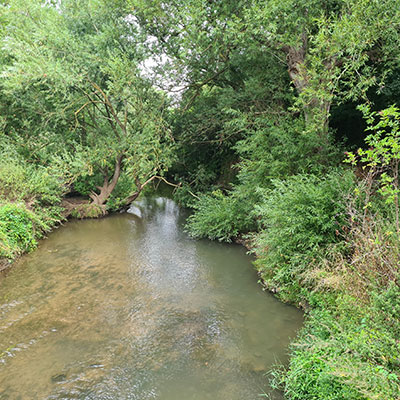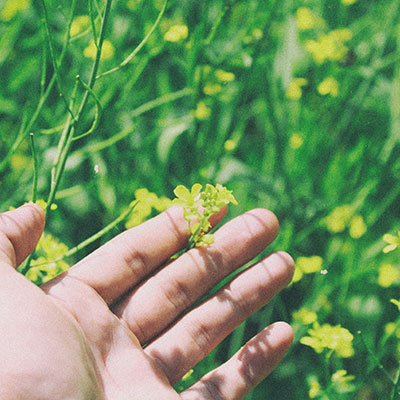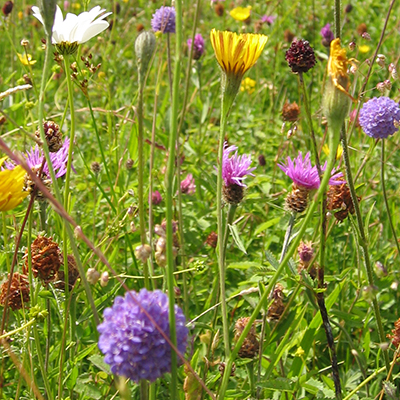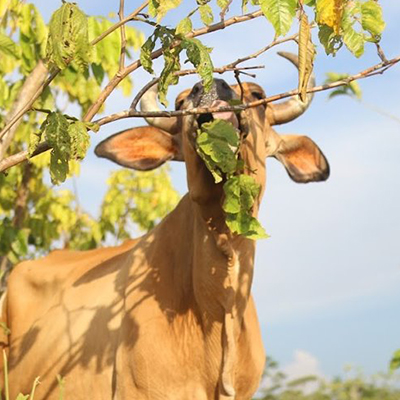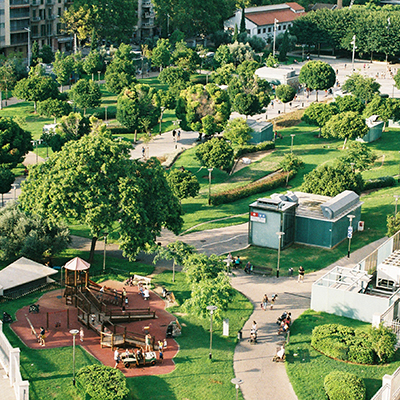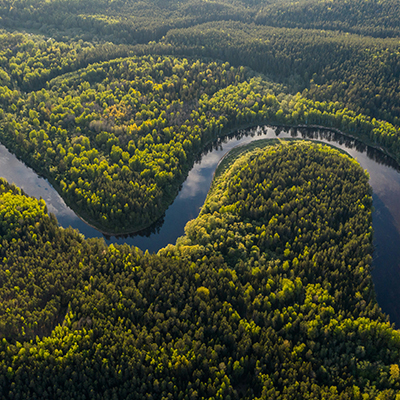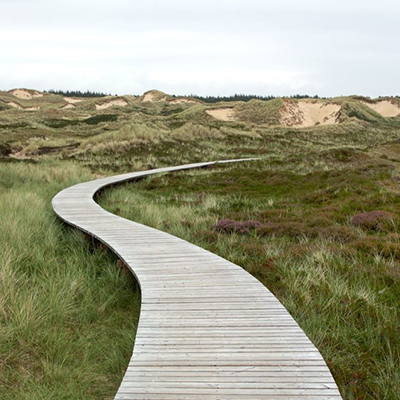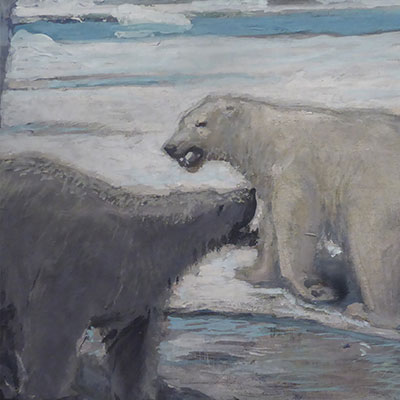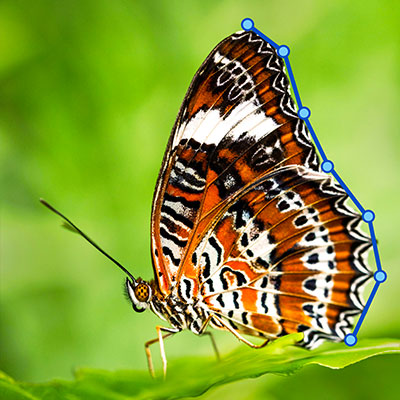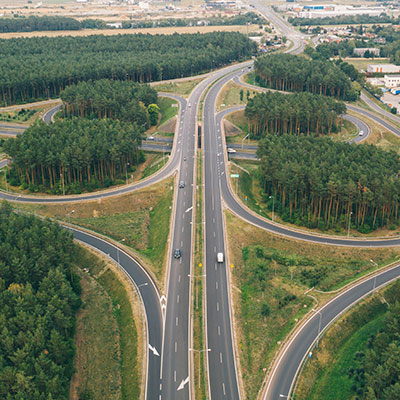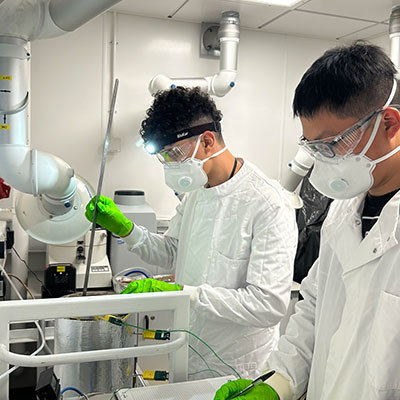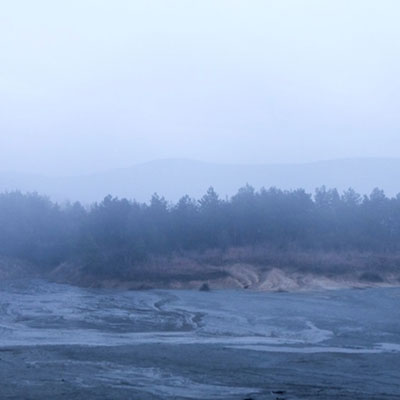You are here
- Home
- Research and Outreach Projects
Research and Outreach Projects

The Open University has been using its research to transform lives throughout the UK and worldwide for over 50 years. In 2022 we embarked on a new research mission to address three crucial societal challenges: sustainability, tackling inequalities and living well. The projects featured here are leading examples of how the OU’s pioneering sustainability research is actively protecting and regenerating our planet.
Improving our understanding of intermittent chalk streams
Chalk streams provide an important and globally rare habitat, with the majority being found in England. Often referred to as England’s rainforests, their clear cool waters provide a unique habitat for iconic species such as the otter, kingfisher, and salmon, and with drying also a characteristic of their behaviour, they are home to some rare specialist invertebrates. But the habitat is at real risk due to intense management, increasing domestic and agricultural demands for water, and the pressures of climate change.
Weston Open Living Lab
The climate emergency and the rapid loss of biodiversity are two profound and closely-linked challenges that will shape the lives of future generations. Nature-based solutions are essential in reversing both of these challenges, but a critical factor in people’s willingness to engage with nature recovery is connection; we don’t protect what we don’t understand.
Floodplain Meadows Partnership
Britain lost 97% of its floodplain meadows during the twentieth century and they remain at risk from climate change and a lack of appropriate management. Alongside carbon sequestration and helping to reduce flood peaks, the meadows improve water quality and support over 200 species of flora and fauna, benefitting wildlife conservation, flood management, and food production.
Sustainable ranching in the Peruvian Amazon
Intensive cattle ranching has led to deforestation and the subsequent degradation of over 30 million hectares of pasture in the Amazon. Climate change is increasing the incidence of drought and flood, hastening degradation further. Farming families are struggling, owning increasingly unproductive and unprofitable land.
Democratising urban tree data
Trees play a vital role in our urban landscapes, reducing flood risk and temperatures, improving air quality, and storing carbon. But the environments in which they grow can be challenging due to poor soils, air quality, and restricted space. We need to understand urban trees so that we can best manage them for society’s benefit. But the small amounts of data that do exist are held privately by local authorities.
Multispecies Justice in the Entangled World: Towards Sustainable Development
Technologies such as the Internet of Things (IoT) and Artificial Intelligence (AI) are regarded as essential tools for achieving the global Sustainable Development Goals (SDGs), and governance bodies have issued ethics guidelines for the technologies’ use. Researchers have warned against prioritising human interests in such policies, arguing for a multispecies reinterpretation of the policies and laws.
Community and EV Renewable Energy Resource Hub
Over 650 million people in Africa have no or limited access to affordable and clean energy. At a time when all countries around the world are being forced to amend their practices to mitigate climate change, help is needed to enable developing countries to transition to the use – and broad rollout – of EV.
Surface Water Integrated Monitoring
There is an urgent need for community owned and low-cost environmental monitoring solutions, particularly in the Amazon, where Indigenous communities are stewards and custodians of vast and very biodiverse areas.
Coastlines
Coastlines brings together a consortium of coastal universities (Lancaster, Southampton, and Hull) with specialists in place writing under the leadership of The Open University, in partnership with English Heritage, The National Trust and coastal literary festivals. It combines archival research, creative commissions, and experimental collaborative and co-creative methodologies to develop a range of deliverables related to the ECP; from an app audio guide, digital literary map and short films of the ECP, to academic essays describing and reflecting on research findings and reflections and recommendations for policymakers.
Art and Ecology
Bringing together art and science of the past to create open access educational resources on today's ecological crisis.
Butterfly Wing Diversification & Evolution with Citizen Science
Segmentation of butterfly wing patterns towards a dictionary of variation, to study mimicry and evolution, using machine learning and AI.
Catalysing transformative food futures for global sustainability (CATAPULT)
CATAPULT aims to explore innovative approaches to food production, processing, distribution and consumption that can help to reduce the environmental impact of the food system. Focusing on issues such as climate change, biodiversity loss, and food waste, the project aims to develop practical solutions that can be implemented at scale to promote more sustainable food systems.
Connecting Communities and Heritages against Climate Crisis
This multinational, multigenerational, multilingual and multimodal programme connects children and young people, with community members and groups, using art activism.
Exploring potential opportunities of servitization for environmentally sustainable transportation networks in the UK
As servitization is an effective way of providing innovative solutions to network members, we aim to explore how it can help achieve zero-emission transportation and what roles policymakers and other stakeholders can play to create a solution ecosystem. As servitization is an effective way of providing innovative solutions to network members, we aim to explore how it can help achieve zero-emission transportation and what roles policymakers and other stakeholders can play to create environmentally sustainable transport networks in the UK.
SPLICE: Sustainable Processes Linked for an Integrated Circular Economy
Sustainable Processes Linked for an Integrated Circular Economy (SPLICE) aims to combat environmental contamination and economic losses due to unsustainable waste management by providing full-system solutions to recover, recycle, and generate valuable materials and energy from wastes. The project aims to accelerate societal change towards reimagining wastes as sources of energy and valuable resources.
Do Investors Care About and Trust Taskforce on Climate-related Financial Disclosures (TCFD) Reporting by UK Companies?
This research looks at perceptions of investors to TCFD-aligned reporting as revealed in earnings calls, shareholder meetings and surveys.
Creativity and Climate
Exploring the use of storytelling in community settings and grassroots groups to enhance awareness and appreciation of nature and build hope for positive futures.
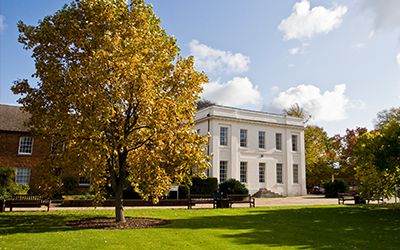
Environment and Social Justice
The OU has helped more than 2.3m people achieve their learning goals – and our mission has evolved into one of environmental and social justice.
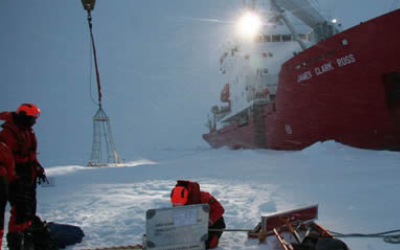
Research & Knowledge Exchange
Read about our thriving Research and Knowledge Exchange community to understand the processes and systems that nourish and sustain us and our planet.
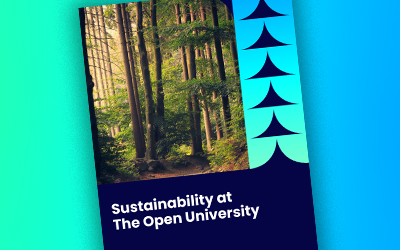
Download the Sustainability brochure
Read about sustainability projects at the OU.
